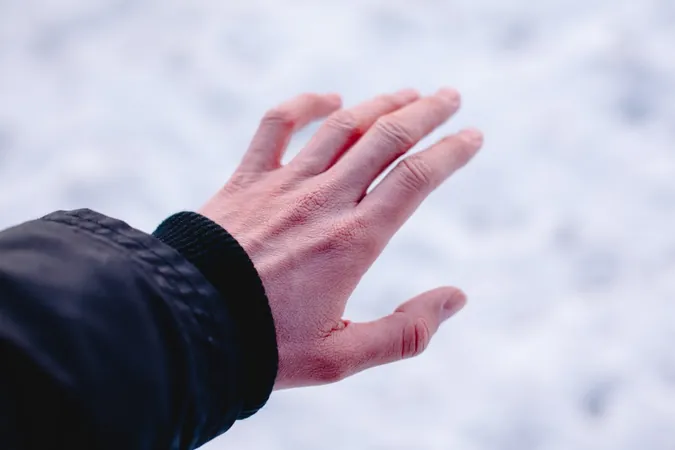
Stay Safe This Winter: Essential Tips to Avoid Frostbite and Hypothermia
2024-12-23
Author: Charlotte
Chicopee, Mass. – As freezing temperatures plunge areas across western Massachusetts into well below zero this winter, the risks of frostbite and hypothermia increase significantly.
With this month reportedly seeing double the number of cold days compared to warmer ones, it is crucial for both humans and pets to stay protected from these harsh conditions.
Understanding Hypothermia and Frostbite
Hypothermia, a serious cold-weather condition, occurs when body temperature drops below 95°F (35°C) and the body struggles to generate heat. Symptoms include shivering, dizziness, muscle stiffness, numbness, drowsiness, and confusion.
Conversely, frostbite is an injury caused by prolonged exposure to extreme cold, typically affecting extremities such as fingers, toes, earlobes, and the tip of the nose. According to the National Oceanic and Atmospheric Administration (NOAA), mere wind chills of -20°F can lead to frostbite in just 30 minutes.
What to Do in Case of Hypothermia or Frostbite
If you or someone around you exhibits signs of hypothermia or frostbite, it’s vital to seek medical assistance immediately.
Essential Tips for Winter Safety
Here are some essential tips provided by the National Weather Service for safeguarding against these frigid conditions:
1. **Layer Up**: Dress in loose-fitting, lightweight layers. Trapped air between these layers serves as insulation, keeping you warmer.
2. **Choose the Right Fabrics**: Avoid cotton during strenuous outdoor activities. Cotton absorbs moisture and takes a long time to dry, leading to loss of heat. Opt for synthetic materials that wick moisture away from your body and dry quickly.
3. **Invest in Quality Outerwear**: Your outer garments should be tightly woven, water-repellent, and ideally hooded to protect against harsh winds and wet conditions.
4. **Protect Your Head**: Since up to 40% of body heat escapes from the head, wearing a hat or hood is essential. Ensure it covers your ears to prevent frostbite.
5. **Cover Your Mouth**: Use a scarf or ski mask to protect your lips, nose, and cheeks, which are particularly vulnerable to frostbite.
6. **Wear Proper Handwear**: Mittens, snug at the wrist, are preferred over gloves as they provide better warmth by allowing fingers to share body heat.
7. **Stay Dry and Shielded**: Try to remain dry and out of the wind as much as possible to minimize heat loss.
Conclusion
In addition to these tips, it's important to keep your home warm and well-insulated. Make sure to check insulation in your windows and doors, and if necessary, invest in weatherproofing materials.
This winter, let's all take proactive measures to stay safe and warm, ensuring that we can enjoy the beauty of the season without falling victim to the dangers of extreme cold. Stay vigilant, dress appropriately, and always be mindful of the potential health risks associated with harsh winter weather.









 Brasil (PT)
Brasil (PT)
 Canada (EN)
Canada (EN)
 Chile (ES)
Chile (ES)
 España (ES)
España (ES)
 France (FR)
France (FR)
 Hong Kong (EN)
Hong Kong (EN)
 Italia (IT)
Italia (IT)
 日本 (JA)
日本 (JA)
 Magyarország (HU)
Magyarország (HU)
 Norge (NO)
Norge (NO)
 Polska (PL)
Polska (PL)
 Schweiz (DE)
Schweiz (DE)
 Singapore (EN)
Singapore (EN)
 Sverige (SV)
Sverige (SV)
 Suomi (FI)
Suomi (FI)
 Türkiye (TR)
Türkiye (TR)